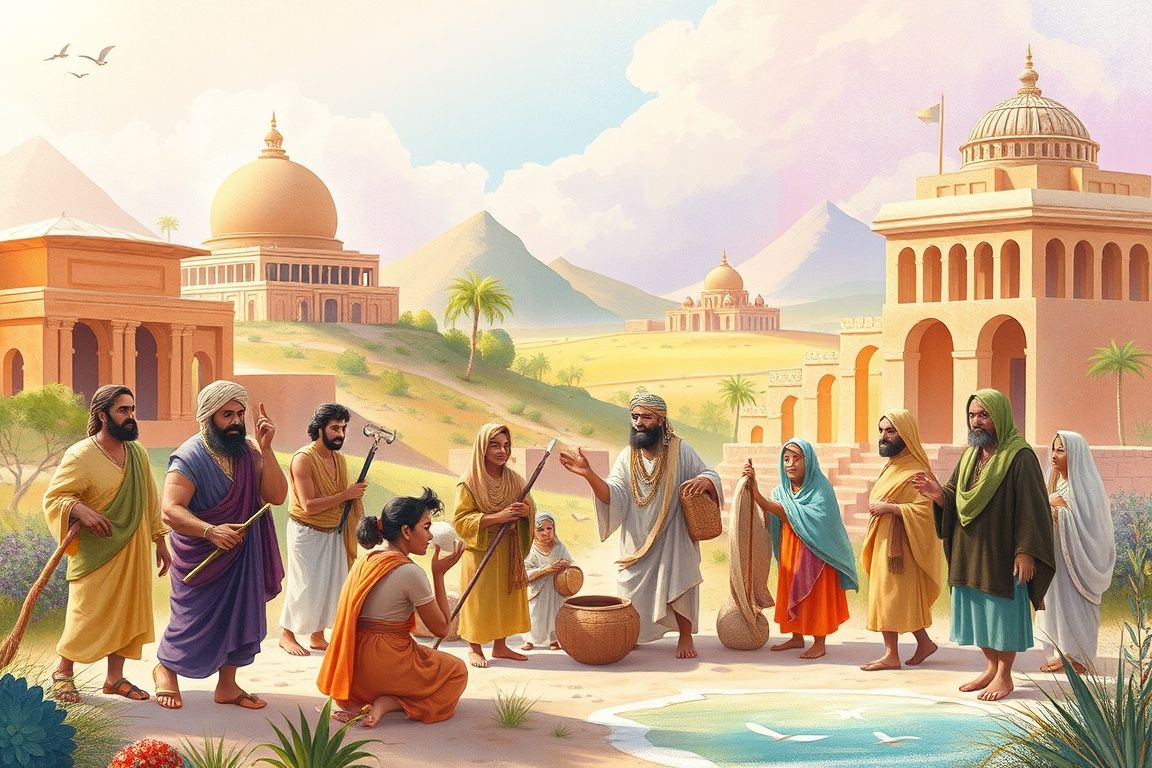The Cradle of Civilization
Why It’s Worth It
Gain a comprehensive understanding of the foundational civilizations that shaped humanity.
Explore significant cultural, governmental, and literary contributions that influence us today.
Enhance your analytical skills by connecting ancient practices with modern concepts.
Your Learning Roadmap
Introduction to Mesopotamia
This module introduces the broad context of Mesopotamia, laying the groundwork for understanding its role as the birthplace of civilization. Participants will examine the region’s geography, climate, and natural resources, and how these factors influenced the formation of early societies. The course clarifies the socio-political and cultural dynamics that set Mesopotamia apart as a hub of innovation and development. Geographical and Historical Context Foundations of Ancient Societies Overview of Mesopotamian Civilizations
The Rise of Sumer
This module delves into Sumer, one of the earliest civilizations known for its innovative urban development and extensive cultural contributions. Participants will investigate the formation of Sumerian city-states, the emergence of the world's first writing system—cuneiform, and the rich religious traditions that defined their worldview. The insights drawn from Sumer provide critical context for understanding the evolution of organized societies. Sumerian City-States Emergence of Writing: Cuneiform Religion and Mythology in Sumer
The Babylonian Empire
This module focuses on the Babylonian Empire and its enduring influence on governance, culture, and art. Participants will study the reign of Hammurabi and his pioneering legal code, the intertwining of myth and religion, and the architectural marvels that continue to captivate historians. The module connects these achievements to broader patterns of cultural development in ancient civilizations. Hammurabi and Legal Innovations Babylonian Religion and Myth Monumental Architecture in Babylon
Assyrian Might and Administration
This module provides an in-depth look at the Assyrian Empire, emphasizing its military prowess, administrative innovations, and cultural contributions. Participants will study how strategic governance and artistic achievements enabled the empire to exert influence over vast territories. The content links military techniques and administrative reforms to the broader evolution of ancient statecraft. Military Innovations Government and Administration Art and Architectural Achievements
Mesopotamian Contributions to Human Civilization
This module brings together the various threads of Mesopotamian history to emphasize their lasting influence on modern civilization. Participants will reflect on the innovations in writing, law, art, and architecture, and analyze how these contributions shaped subsequent cultures. The module encourages analytical thinking about continuity and transformation in human development. Innovations and Their Legacies Epic of Gilgamesh Analysis Influence on Later Cultures
What Users Are Saying
All You Need to Know
Join Ancient Insights Now
Engage with an AI assistant for real-time feedback and support.
Learn through interactive chat formats for dynamic discussions.
Access content anytime, enabling flexibility in your studies.
Explore ancient texts, architecture, and societal structures in depth.
Receive instant answers to your questions and enhance comprehension.
Immerse yourself in self-paced learning tailored to your schedule.

